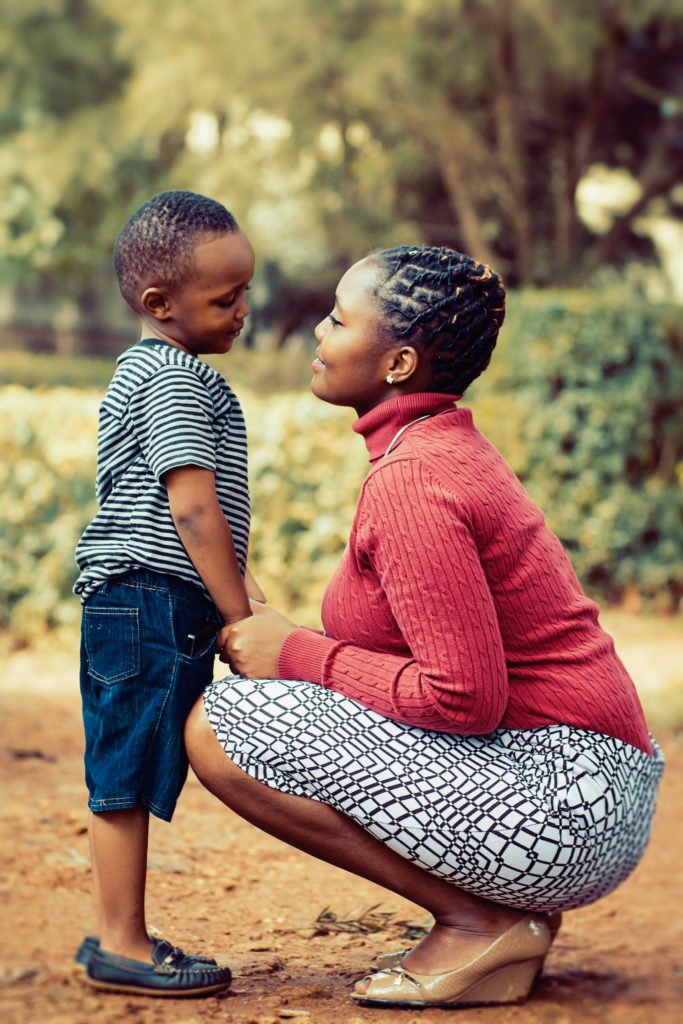-By Melissa Pintor Carnagey, LBSW-
As a parent or caregiver, how do you react when another adult is not respecting your child’s consent- when it’s clear that your child is uncomfortable or has said no, but the person insists? For example:
- the grandma who demands a kiss or hug each time when greeting her
- that uncle who tickles too roughly, for too long
- the older cousin that begs for your child to sit on their lap
- a stranger reaching in for uninvited touch
Sound familiar? If not with your child, you may recognize these as situations that played out within your own upbringing. If that’s the case, you’re not alone. Growing up, I was taught that being polite and respectful meant I had to set aside my comfort to appease another’s. I learned that I was deserving of stern glares and punishment if I even dared to refuse affection from my elders. Being tickled was never an experience I had control within. I knew playing that game meant aches to my belly and pleading tears before someone would finally stop. And being a mixed child with long curly hair, meant I was often placed on display and touched by all kinds of strangers, regardless of whether I desired it.

If respect for a child’s body sovereignty wasn’t modeled for you growing up, it’s much harder to replicate as an adult.
Experiencing consent violations and a lack of body autonomy in childhood can affect how confident a person feels in speaking up for the consent of a child they’re raising. Not having a voice to set boundaries for my own body, made it difficult to speak up on behalf of my child’s.
Even when you know that a young person’s boundaries should be respected, the act of speaking up to problematic family members, strangers or other adults can still feel uneasy. It’s taken me years of unlearning, sprinkled with a little therapy, receiving new education and lots of practice to find my stride in becoming the advocate I needed when I was a child. My process boils down to five elements that can help you handle a situation where an adult is not respecting your child’s consent:
Address the violator
Just as many adults of today are conditioned to excuse consent violations, many more have been enabled to perpetuate them. For this reason, we can’t just assume a person knows better; we’ve got to address the issue. Speaking up can sound like, “Julie said no. She doesn’t want a hug and we are making sure her boundaries are respected;” “Tickling isn’t fun if it’s not fun for everyone. Jay is asking you to stop. No more tickles;” or “Please ask before touching. Consent is important to our family.” Assertive communication is key. It ensures everyone involved is given the context to make a more informed choice moving forward.
If it’s someone you’d like your child to see as a trusted caregiver, let the person know this- “It’s important to me that Mariah can see you as a trusted adult in her life. Let me share with you what that means and can look like. I’m happy to answer any questions you have about this…” Inviting a caring adult into your child’s safety network comes with educating them and providing responsive feedback to better ensure they’re able to get it right. Ideally, the boundary crossing behavior stops there and becomes a valuable learning opportunity for another adult. If pride, entitlement or disrespect are involved, keep reading.
Remember what’s in your control
Another’s actions, words, personality, body, and perspectives are not in your control. Focus on setting the boundary and don’t waste time trying to change a violator or convince any critics of your decision to nurture your child’s body autonomy. If someone is failing to behave in a way that feels safe to you or your child, that’s information. Make note and move your focus toward next steps that honor your child’s consent. Use your energy wisely.

Talk openly with your child
The most ineffective thing a parent can do is to avoid talking with their child about the issue. It’s so important that we prepare them for boundary setting and challenging dynamics by talking before, during and after situations. Discuss the many ways greetings and affection can be approached. Talk about unsafe touch. Ensure they have clear language for all body parts, especially genitals, as well as the ability to talk openly about their feelings. Pay attention to how your child acts in the presence of others. Don’t dismiss what you observe or what they express. This can sound like, “I noticed when grandma kissed you, you pulled away. How were you feeling in that moment?” This is the time they are developing their instincts, and you want them to grow to trust them, so you have to demonstrate trust for them as well. Develop the kind of bond that leads to responsive action.
Model healthy boundaries
Be in the habit of prioritizing your boundaries (especially with your kids), listening to and honoring your body, and respecting the boundaries of others. The more you practice healthy consent and bodily autonomy for yourself, the more confident and clear you become about the importance of these skills. In other words, don’t just talk about it, be about it.

Distance yourselves
If you’ve done all of the above and a boundary is still not being respected, create space. This can mean not engaging with the person further, not attending the same events, or even disconnecting from them on social media. Don’t hesitate to make it clear to your child, or others, the reasons why. Often people keep quiet, which doesn’t give all parties involved clear context to the true issue and consequences and doesn’t allow others to act as supportive allies. Also keep in mind that ardent consent violators most often violate others. Your actions can be a helpful example to other victims.
Confrontations can be difficult, but due diligence means we speak up and advocate on behalf of our children. I am in awe of both of my kids’ abilities to: say no without apology; expect others to ask for their consent; and, to respect the boundaries of others. How different my journey would have been if I’d had these skills earlier.

One final element is holding compassion for yourself. If you find that you missed an opportunity to address a situation in the moment, don’t dwell on what “should” have been. You can always initiate the conversation with your child and the person later and use the time before that to reflect and practice what you wish to say. You may even want to check-in with another adult you trust, to talk through your next steps and receive support. The more you practice boundary setting and speaking up for your child’s rights to consent, the more seasoned and prepared you become.
For more helpful tools to support the talks, check out our list of books for every age and stage on topics like consent, body awareness and sexual health. We also recommend these great videos for youth and families to learn together about consent from Amaze.org and Blue Seat Studios.
 For a guide made just for parents and caregivers to tackle sexual health talks at every age and stage, check out our bestselling book Sex Positive Talks to Have With Kids: A guide to raising sexually healthy, informed, empowered young people.
For a guide made just for parents and caregivers to tackle sexual health talks at every age and stage, check out our bestselling book Sex Positive Talks to Have With Kids: A guide to raising sexually healthy, informed, empowered young people.

Sex Positive Talks to Have With Kids is the bestselling guide to creating an open, shame-free connection with the young people in your world.
It’s an inclusive, medically accurate, and comprehensive resource that walks you through over 150 conversation starters, reflection exercises, and activities you can begin implementing at every age and stage to normalize sexual health talks and become the trusted adult we all needed growing up.
